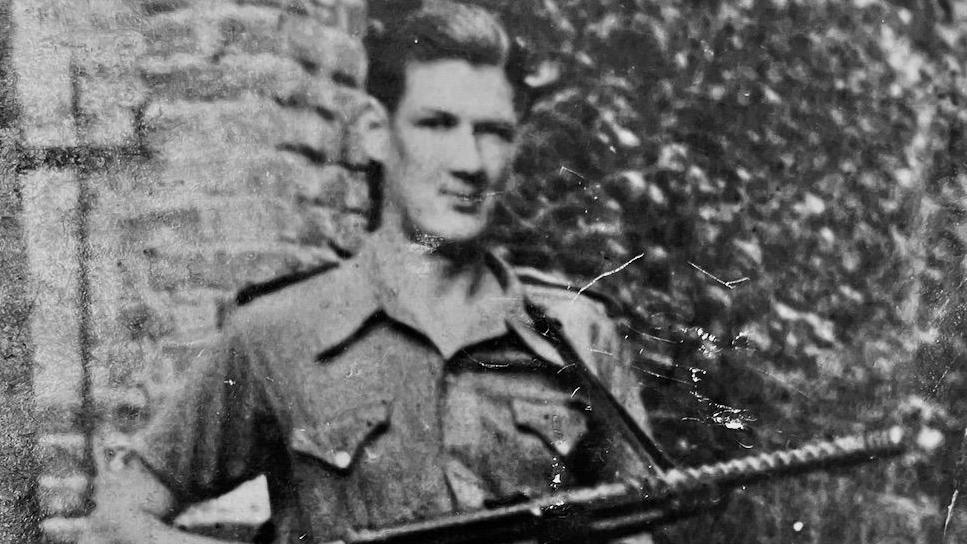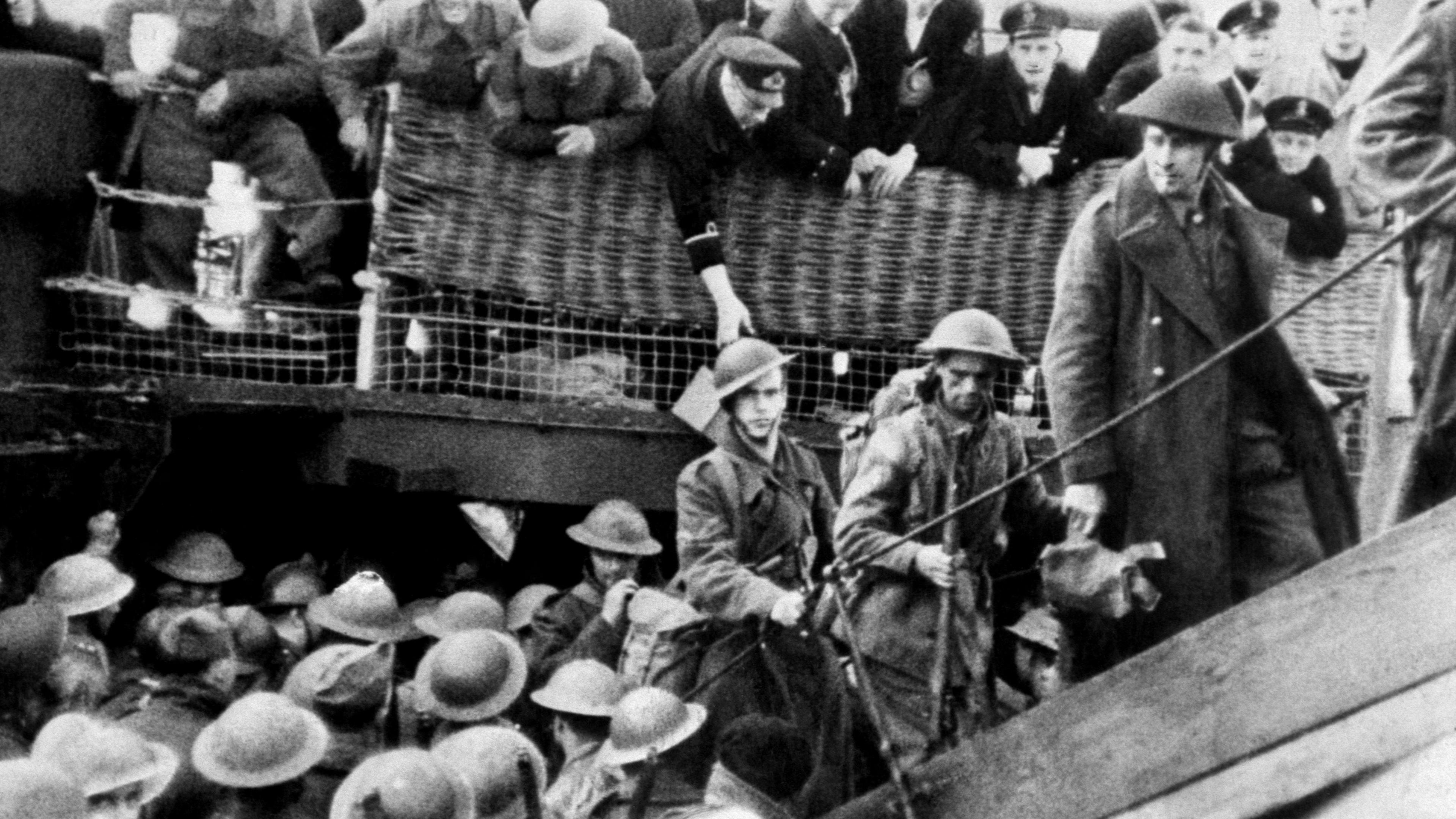WW2 soldier's tale revealed in 40-year-old recording

Arthur Chester served in the East Yorkshire regiment at Dunkirk in World War Two
- Published
A soldier's remarkable war story, from the evacuation of Dunkirk to his escape from a prisoner of war camp and time with the Italian Resistance, is being shared in a recording he made for his family on a small brown and cream cassette recorder nearly 40 years ago.
Arthur Chester, a man "who liked things to be right", began by taping music from his record player - a trumpet reveille, a call signalling the start of the military day.
His tone was matter of fact. But, in this 1987 recording, he revealed an astonishing set of wartime experiences.
The stories have been passed down Arthur's family, but his granddaughter Sally Wharram feels more people should hear them.
We listen to the tape in her florist's shop. Colour and perfume twine with bravery and brutality.
In May 1940, as part of the East Yorkshire Regiment, Pte Chester was in France.
He was part of the rear guard, keeping the Germans at bay while the main British Expeditionary Force was rescued from the beach at Dunkirk during Operation Dynamo.
"It was a sacrifice that had to be made," he said.

Arthur Chester's family, Diane Wharram, Beth Moran, Sally Wharram and Grace wanted to share his story
By the time his battalion reached Dunkirk, he saw a "disastrous sight" with "ships sunk, dead soldiers floating in the sea, the wounded and dying all along the beaches."
They waded into the water, holding rifles above their heads, to be picked up by the small ships.
"It was heartbreaking having to leave some of the badly wounded and dying comrades behind," he said.
He was just 23 at the time, but Arthur's daughter, Diane Wharram, describes him as "strong".
"He was army through and through. He could prepare his mind, because he was doing it for King and country," she says.
Soon after, Arthur faced another ordeal. He discovered his brother John had been killed in France. It fell to him to tell his parents.
On the tape, he admitted, as he approached the house, his heart was "full" and his mind "very confused".
Diane says he never spoke about their reaction – it was "another story he put aside". Like many veterans, he hardly talked about the war until decades later.
In his next recorded chapter, Arthur described his posting to Egypt and Libya, where "horrifying" desert battles saw soldiers "mowed into the sand, the tanks running over them."

Pte Chester was part of the rear guard as British forces were rescued from the beach at Dunkirk
They were forced to surrender, and Arthur became a prisoner of war in Italy.
When the Italians surrendered to the Allies in late 1943, he took a chance. Amid the confusion, Arthur and others escaped and headed towards the Alps.
At a farm, they were offered help and the chance to join the resistance movement.
Three men chose to carry on their journeys but they were ambushed. One was captured, the others were killed.
Arthur's decision to stay saved his life, but led to further danger.
He joined a resistance group north of Turin, blowing up railways and checkpoints and attacking fascist headquarters. But the Germans were persistently closing in.
In a small group, he crossed the Alps in freezing conditions and snow blizzards with no special clothing or equipment.
The "treacherous weather", he described, "was telling on us with the cold and frostbite, feeling tired and wanting to go to sleep – which would have been fatal."
The risky journey enabled him to make contact with the French resistance and, from there, with American and British forces.
Old cassette brings back Hull WW2 veteran's stories
"I always say there was something on his shoulder," says Diane. "Whenever he was about to be shot or killed, he walked away."
Although she encouraged him to make the tape, it is only now, aged 84, that she has listened to it fully. His voice would always cause her to break down.
But it is a recording her daughter Sally and granddaughter Beth have returned to over the years.
"Each time you listen to it, something else jumps out at you," says Sally. "I send it out to friends, and they do come back and say wow!"
"They were a different breed, a different class of men," adds Beth.
Even eight-year-old Grace, Beth's daughter, has listened – though she admits some of it was upsetting.
She was inspired to write a poem including the lines:
"Thank you great-great-grandad for everything you gave. I promise I will live in peace because you were so brave."
Arthur's recording ends with the hope younger generations will not face "the terrible ordeals of war."
His sign off, "from an old soldier", fills his family's eyes with tears of pride.
Listen to highlights from Hull and East Yorkshire on BBC Sounds, watch the latest episode of Look North or tell us about a story you think we should be covering here, external.

